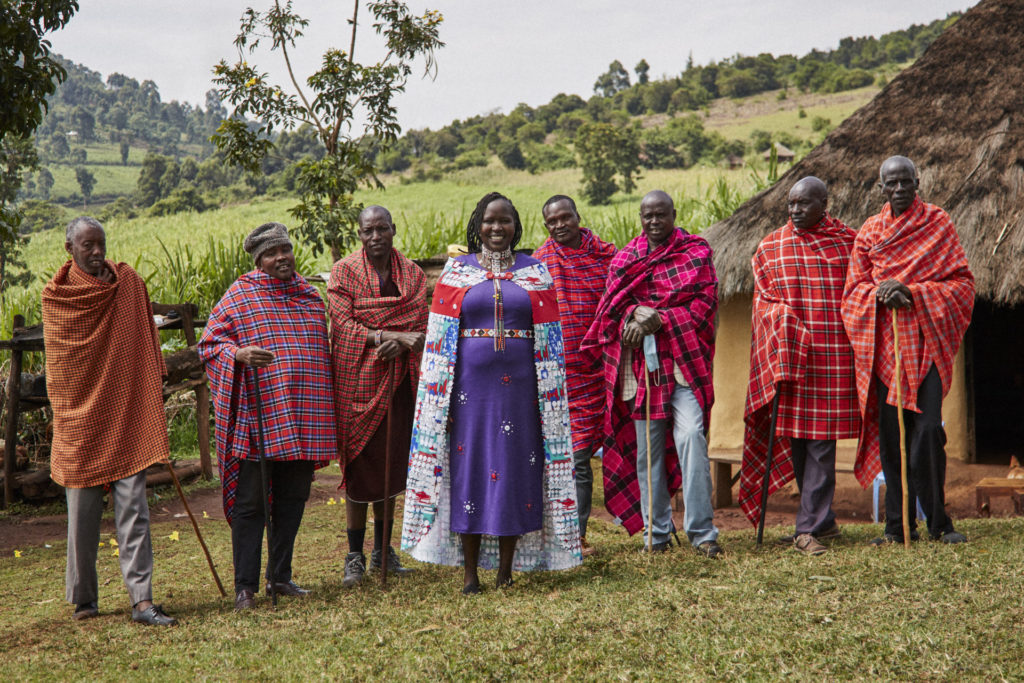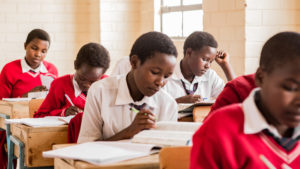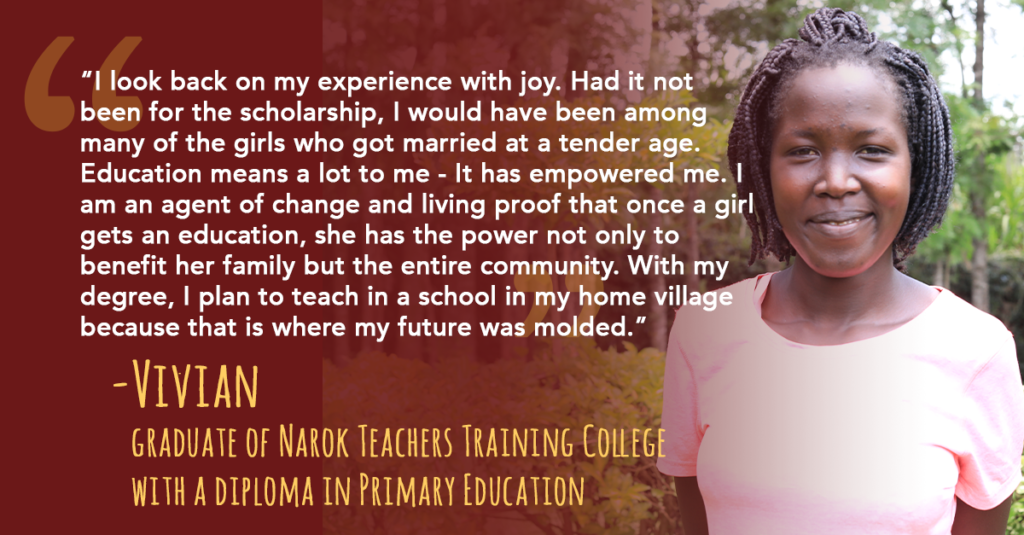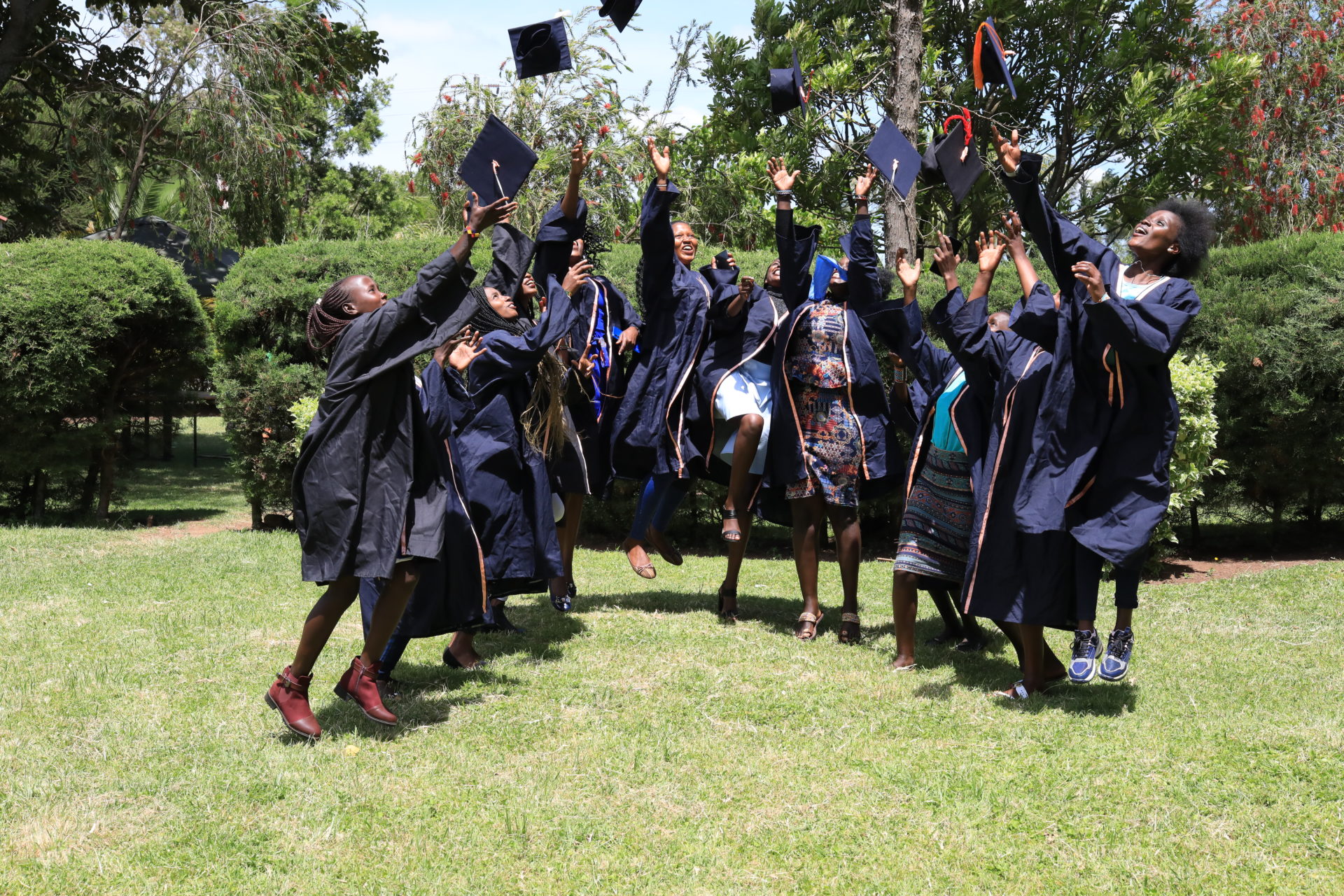Transforming communities through girls' empowerment: Q&A with Kakenya's Dream
Written by Olivia Nater | Published: February 3, 2023
Through our Global Partners program, Population Connection supports a growing number of grassroots organizations around the world working to increase access to education, public health and family planning services. Their efforts make a vital difference in their local communities and represent the “final step” in our shared work to make the world a more just and sustainable place for everyone.
Get to know our wonderful partners in this Q&A series! Here we speak to Dr. Kakenya Ntaiya, Founder and President of Kakenya’s Dream. Founded in 2008, Kakenya’s Dream began as a single school serving 30 vulnerable Maasai girls. Today, it is a robust nonprofit organization supporting girls holistically with a foundation of quality education in addition to community-based health and leadership programs designed to empower girls to become agents of change, to end harmful traditional practices including female genital mutilation (FGM) and child marriage, and to transform communities in rural Kenya.
What prompted you to start your organization?
I come from the indigenous Maasai community in one of the most marginalized regions of Kenya, where nearly 80% of girls undergo FGM at puberty, 50% are married before the age of 19, and only 17% complete a primary education. For many years, the lives and well-being of girls wasn’t a priority in my community because girls were only ever valued as commodities to be traded for cattle and money in exchange for their hand in marriage.
FGM is practiced as a rite of passage that is believed to prepare girls for womanhood and marriage. Once marriage has been arranged (for me, that was at just five years old) and we have undergone FGM, our schooling ends because we’re expected to start families and become homemakers. Education for girls was only seen as a tool to socialize us for marriage. Without a formal education, professional development opportunities, or the resources and support to pursue these things, this path often locks girls and women into lifelong poverty.
I knew that a different, more empowered life, free from forced marriage, FGM, and poverty was possible for girls and women in my community, and it became my dream to make it a reality. And so, Kakenya’s Dream was born.

What programs or projects are you currently working on?
Kakenya’s Dream is operating a range of holistic education, health, and leadership programs to empower vulnerable girls and transform communities across rural Kenya. Our programs address the common factors that prevent girls from continuing with their education, including poverty, gender inequality and gender-based violence, child marriage, and FGM. Our wraparound programs nurture the whole girl and all of her unique needs from childhood to adulthood, because we believe an educated and well-supported girl has the power to transform her family, community, and the world at large.

Our education programs include the Kakenya Centers for Excellence, two full-support girls’ boarding schools that provide high-quality education to the most vulnerable girls in rural Kenya. When our students graduate from our boarding schools, they then enter our Network for Excellence program, which supports them as they make the critical transition to secondary school (high school) and tertiary education (college/university), a time when most girls in our community experience increasing pressure to get married and drop out of school. Through the Network for Excellence, we provide college and career guidance, scholarships and financial aid, tutoring, and social support so that our students are set up for success in adulthood. Our goal is to get them to their first-choice destination, whether that’s a university education, trade school, or job. Upon completion of high school, our university-bound alumni enter a nine-month gap year course that includes internships and other professional development opportunities and academic skills enhancement to ensure they’re ready for the demands of a college education. For those who want to start a career directly after high school, we assist them with job placement and building their professional network to ensure they can achieve economic independence.
With extremely limited health care resources and education in our region, most community members know little about their bodies or rights. This lack of sexual health and rights-based education leads to increased rates of FGM, child marriage, unplanned teenage pregnancy, and cyclical, intergenerational poverty. To combat these problems, we also equip our students, plus boys and girls in partner schools across rural Kenya, with comprehensive sex education, information about the dangers of FGM and child marriage, knowledge of their legal rights, and life skills training through our Health and Leadership Training program.
To further meet our region’s health care needs, we are also building the community’s first and only youth-friendly health and wellness clinic! Once operational, the clinic will provide basic health care, mental health support and counseling, stigma-free sexual and reproductive care, and an emergency hotline for reporting incidences of violence.
What do you hope to achieve in the next five years?
One of the most exciting achievements we’re working toward at the moment is opening our health clinic and expanding our Health and Leadership Training program to as many schools as possible across rural Kenya. The Covid-19 pandemic truly exacerbated existing inequalities and disproportionately impacted vulnerable communities like ours around the world, and now more than ever we see the need to build out our community’s health care resources.
In addition to expanding these programs, we’re also excited to build our alumni programming as we now have one class of students graduating from high school and college every year, and we want to ensure they have opportunities to stay involved with Kakenya’s Dream.
We also look forward to sharing our holistic and replicable model with other community-based organizations across rural Africa to ensure that girls in similar communities across the continent are able to thrive.
What have been some of the greatest challenges you have faced?
Creating sustainable, community-wide change takes time, and that can be a challenging reality to accept. This is especially true now that so much hard-fought progress has been lost due to the Covid-19 pandemic. According to the UN Population Fund (UNFPA), an additional 2 million cases of FGM are expected to occur as a result of the pandemic over the next decade, due in large part to the delays and budget shortfalls Covid-19 is causing in programs to end FGM. Similarly, an estimated 13 million more child marriages may occur over the next 10 years due to growing economic hardship caused by the pandemic.
Attention, resources, and funding have been redirected and girls around the world in communities like ours are suffering the consequences. Now more than ever, we need patience and understanding that true change takes time, and we also need resources and sustained support for our work in order to win back the progress that was lost and continue moving forward.
What are you most proud of?
I am so proud of and inspired by our incredible students. When we built our boarding schools, they quickly filled with young girls facing seemingly insurmountable challenges, and even still, all of them showed up with an unwavering passion to pursue an education. I’ve been in awe of these students ever since. I am also incredibly proud of how far our community has come: The village elders donated the land on which our first boarding school was built. The village chief now enforces and supports our strict no-FGM or child marriage policy at our schools among the parents of our students.

Parents once against the idea of educating girls are now rallying behind their daughters and serving as champions of our mission, convincing others in the community to support girls’ empowerment and an end to harmful practices like FGM and child marriage. All of this, in a community that once believed a classroom was no place for a girl.
In these, and countless other ways, this community has proven that they’ve put their trust and faith in this organization to guide change — change that impacts all of their lives. It’s a brave act, and I deeply admire them for their courage to put their trust in us. And as a result, we have educated and supported 725 girls at our Center for Excellence boarding schools and provided continued financial, academic, and social support to 308 girls in their transition to secondary and tertiary education through our Network for Excellence program, and our Health and Leadership Training program has reached 19,000 youth in 132 schools across the region with critical information about their health and human rights. This kind of progress isn’t possible without the community standing with us, and I’m proud to have gained that support.
To learn more about Kakenya’s Dream, visit their website and follow them on Facebook, Twitter and Instagram!
Dr. Kakenya Ntaiya was also featured in Bill Gates’ Heroes in the Field series in 2022! Watch the video here:

